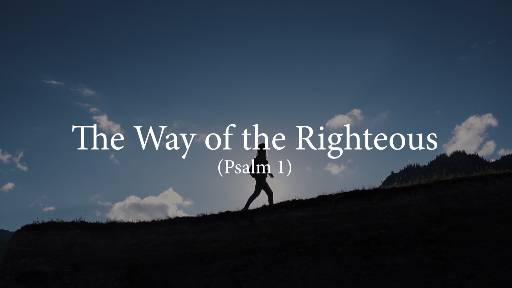-
Do Everything For The Glory Of God Series
Contributed by Christian Cheong on Sep 8, 2022 (message contributor)
Summary: Paul set two principles for the conduct of Christians: (1) Seek the good of others, and (2) seek to glorify God in everything we do.
1 Cor 10:23-11:1 Do Everything for the Glory of God
Finally, we have come to the end of the discussion on eating food offered to idols and the need to exercise self-control and not stumble another.
• Paul wants the Corinthians to watch our conduct so that everything can be done to the glory of God.
1 Cor 10:23-11:1 ESV
23 “All things are lawful,” but not all things are helpful. “All things are lawful,” but not all things build up. 24 Let no one seek his own good, but the good of his neighbour. 25 Eat whatever is sold in the meat market without raising any question on the ground of conscience. 26 For “the earth is the Lord’s, and the fullness thereof.” 27 If one of the unbelievers invites you to dinner and you are disposed to go, eat whatever is set before you without raising any question on the ground of conscience. 28 But if someone says to you, “This has been offered in sacrifice,” then do not eat it, for the sake of the one who informed you, and for the sake of conscience — 29 I do not mean your conscience, but his. For why should my liberty be determined by someone else’s conscience? 30If I partake with thankfulness, why am I denounced because of that for which I give thanks?
31So, whether you eat or drink, or whatever you do, do all to the glory of God. 32Give no offence to Jews or to Greeks or to the church of God, 33just as I try to please everyone in everything I do, not seeking my own advantage, but that of many, that they may be saved.
c
• NIV 23“I have the right to do anything,” you say—but not everything is beneficial. “I have the right to do anything"—but not everything is constructive.
• KJV 23All things are lawful for me, but all things are not expedient: all things are lawful for me, but all things edify not.
If I combine the words used in the various versions, the line will go like this:
• “All things can be lawful but not everything is necessarily helpful, builds up, beneficial, constructive or edifies.” Not everything lawful edifies.
• So besides saying, “This is my right,” and “This is the right thing to do,” we are to ask one more question: “Does it edify?” Would what I do builds up someone?
“To build up or edify” has been Paul’s recurring theme.
• We first read of it in 1 Cor 8 when he tells us not to stumble a weaker brother and reminds us to love him because love builds up.
• Here in 1 Cor 10 he says all things are lawful but not everything builds up.
• Going forward we will find this word used a few more times in 1 Cor 14 when Paul tells the Corinthians to use their gifts to build up one another, to edify the church.
• And do that out of love, not pride, and hence we see Paul breaking in with a long passage on love in 1 Cor 13. Love obliges us to act in a way that benefits our brother.
10:24 Let no one seek his own good, but the good of his neighbour.
Principle 1: SEEK THE GOOD OF OTHERS
A theme we have seen repeated since 1 Cor 8. Don’t stumble your brother. We are to seek the good of others.
• This is the example of Christ and therefore the lifestyle of Christians, His followers.
• This is a challenge to us because it is not our most natural inclination. We don’t usually think of others. We have to exercise “self-control” or discipline our minds to do that.
• We have to “train” ourselves not to look only to our interests but also to the interests of others (cf. Phil 2:4)
--------------------
Paul went on to paint a situation which has been raised likely by the Corinthians.
• He uses it apparently to illustrate the need to be conscious of the need of others and to seek their good.
It is about eating food in the home and not knowing where the meat comes from.
• If we are to “flee from idolatry” and not eat the meat offered to idols in the Temple, then what about the meat our unbelieving friend put before us?
• That meat might have come from the marketplace but was used in the Temple as sacrifices to the idols.
25Eat whatever is sold in the meat market without raising any question on the ground of conscience. 26For “the earth is the Lord’s, and the fullness thereof.” 27If one of the unbelievers invites you to dinner and you are disposed to go, eat whatever is set before you without raising any question on the ground of conscience.

 Sermon Central
Sermon Central



